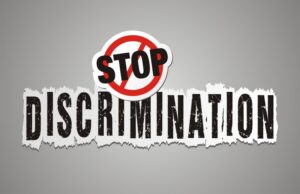Will the Harvard/U.N.C. Decision Affect the TJ Admissions Case?

On May 23 of this year, the U.S. Court of Appeals for the Fourth Circuit, in a 2-1 decision, overturned a federal district court’s ruling that the new admissions standards for the elite Thomas Jefferson High School for Science and Technology (“TJ”) violated the “equal protection of the laws” mandate of the Constitution’s Fourteenth Amendment. The district court had found that the revised criteria were unconstitutional because they were adopted with the intent to, and effect of, reducing the percentage of Asian Americans in the student body. The appeals court concluded, however, that the evidence of discriminatory intent was insufficient, so it upheld the revised admissions policy. That decision was reported on and analyzed in two articles on this site. See “Appeals Court Overturns District Court in TJ Case,” and “Coalition for TJ v. School Board — Further Analysis.”
On June 29 the United States Supreme Court issued its much-awaited decision in Students for Fair Admissions, Inc. v. President & Fellows of Harvard College. The decision is HERE. It considered the policies of Harvard University and the University of North Carolina, both of which considered race as a factor in deciding who to admit. The Court, in a 6-3 ruling, struck down those policies. The majority held that when public universities consider race in their admissions decisions, they violate the Fourteenth Amendment, and that when private universities who receive federal aid do so, they violate federal civil rights laws.
The Coalition for TJ is appealing the Fourth Circuit’s adverse decision to the U.S. Supreme Court. Will the Harvard/U.N.C. decision require a ruling in the Coalition’s favor?
Analysis
Coalition for TJ, like Harvard/U.N.C., involves admissions policies that have adversely affected Asian Americans, so it would seem that the outcome should be the same. However, the Coalition must overcome two hurdles:
First, the U.S. Supreme Court must decide that the Fourth Circuit’s Coalition for TJ decision merits further review. The Court has discretion to grant review or deny it, and it’s possible it will simply decide that since it has so recently laid down the law for the future, there’s no compelling need to consider another case now.
Second, the Coalition for TJ needs to convince the court that its case is governed by Harvard/U.N.C.
What frequently happens in situations like this is that the Supreme Court will not itself agree to review the matter but will send the case back to the appeals court “for further consideration in light of [the Supreme Court’s recent decision]. If that happens, the Fourth Circuit will be required to reanalyze the case in light of the principles established this week in Harvard/U.N.C. The case might be re-decided by the same three judges who decided it in May, or it could be reheard by all fourteen active judges of the Fourth Circuit Court of Appeals.
The School Board might argue that this case is different than Harvard/U.N.C. because TJ doesn’t explicitly use race as a factor in deciding who to admit. The new admissions criteria clearly were intended to affect the racial/ethnic mix of the student body (“diversity” is the operative term), but instead of specifically considering an applicant’s race, the TJ policy employs surrogates that are designed to achieve the same result. Using criteria such as giving preference to students from middle schools that were “underrepresented” in the past, giving extra points to students who are eligible for subsidized meals, and allocating seats at TJ geographically, the School Board deliberately reduced the number of Asian Americans who could be admitted and correspondingly increased the admission of others.
In its decision in May, the appeals court relied heavily on the fact that the TJ admissions criteria don’t specifically use race as a factor, and the court might possibly do so again. If that were to occur, the case might be appealed to the Supreme Court again.
The majority justices in Harvard/U.N.C. anticipated the possibility of end-runs around the Court’s decision when it stated, at the conclusion of its opinion: “Universities may not simply establish through application essays or other means the regime we hold unlawful today. … The Constitution deals with substance, not shadows, and the prohibition against racial discrimination is leveled at the thing, not the name.”
One thing is clear: The revised admissions policy for TJ will remain in effect for the time being, while further court proceedings play out. Another year might pass before the controversy is finally resolved.
If you believe this article is interesting and informative, please share it with others, and encourage them to register to receive notices of future postings on this site.


I wish the elite would recognize that math and science are really hard. The best of the best struggle with it. I tried to be an engineer and quit because it was so hard and I was too lazy.